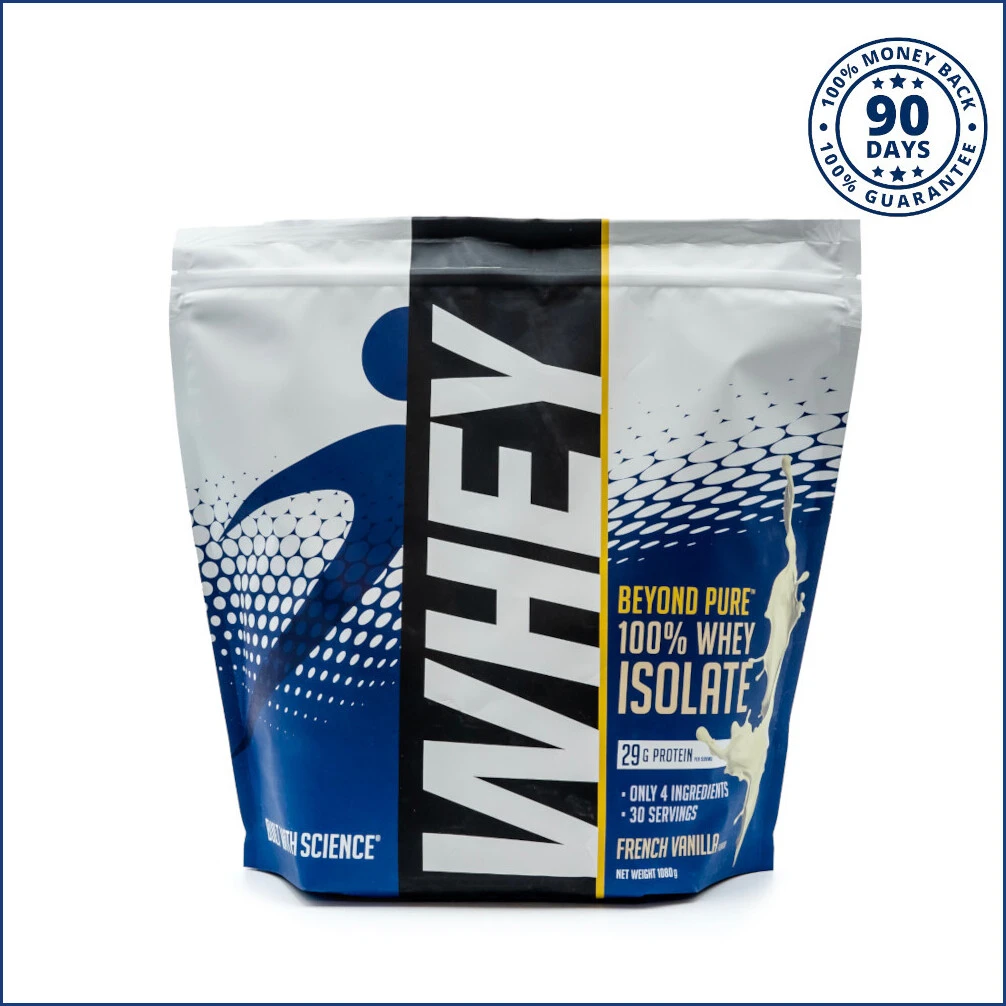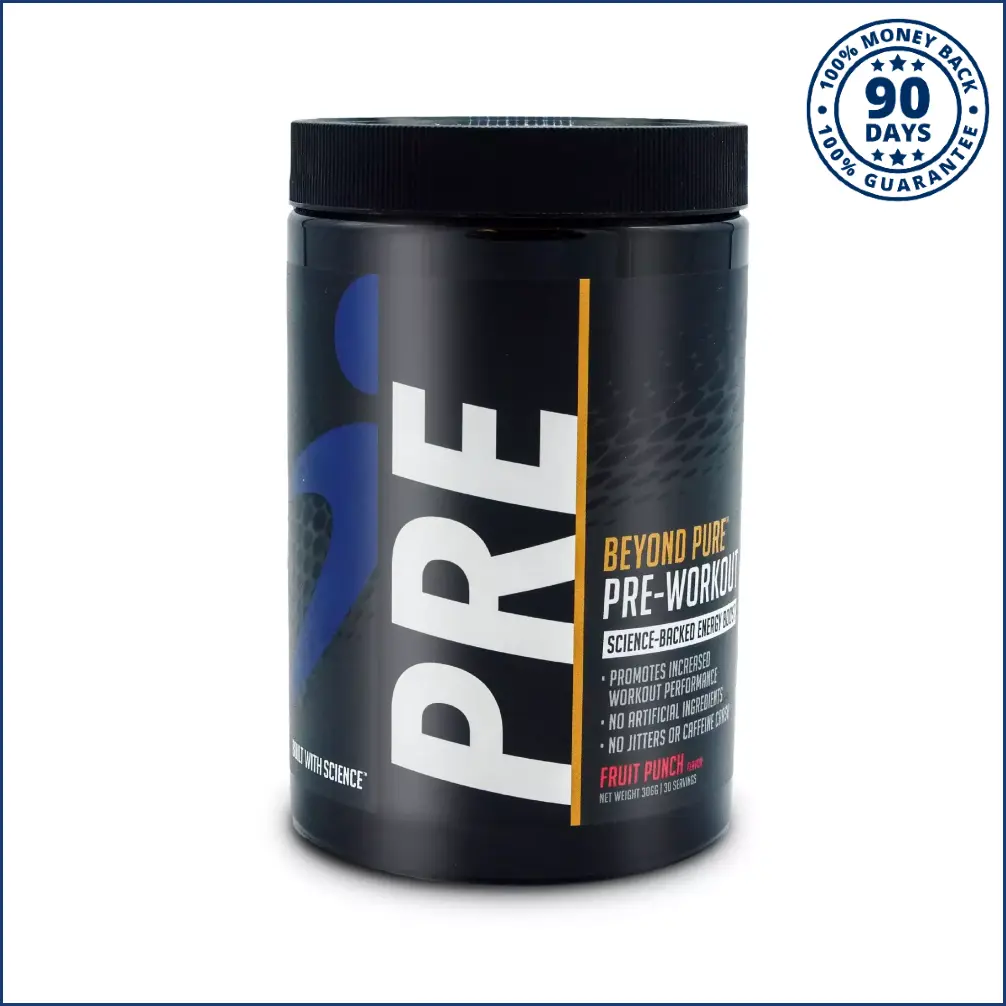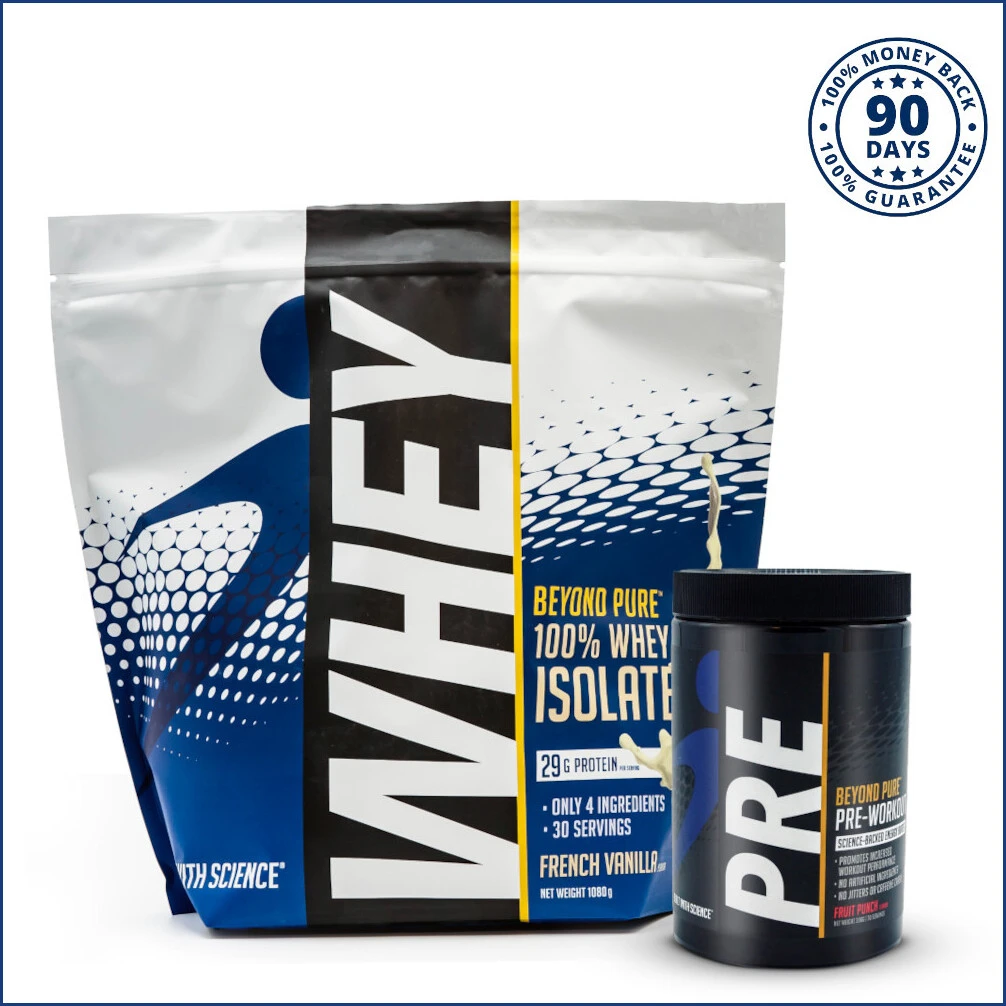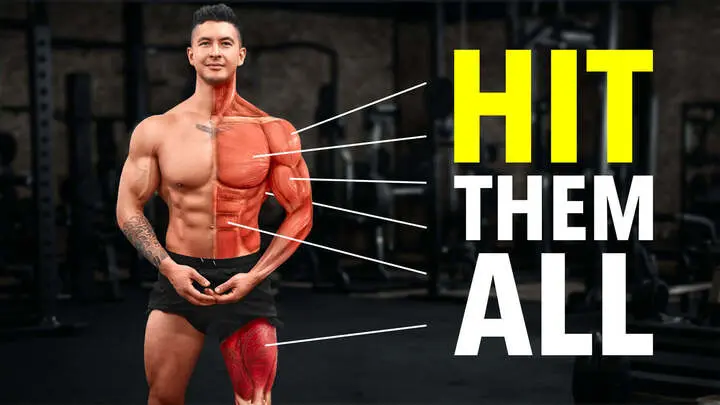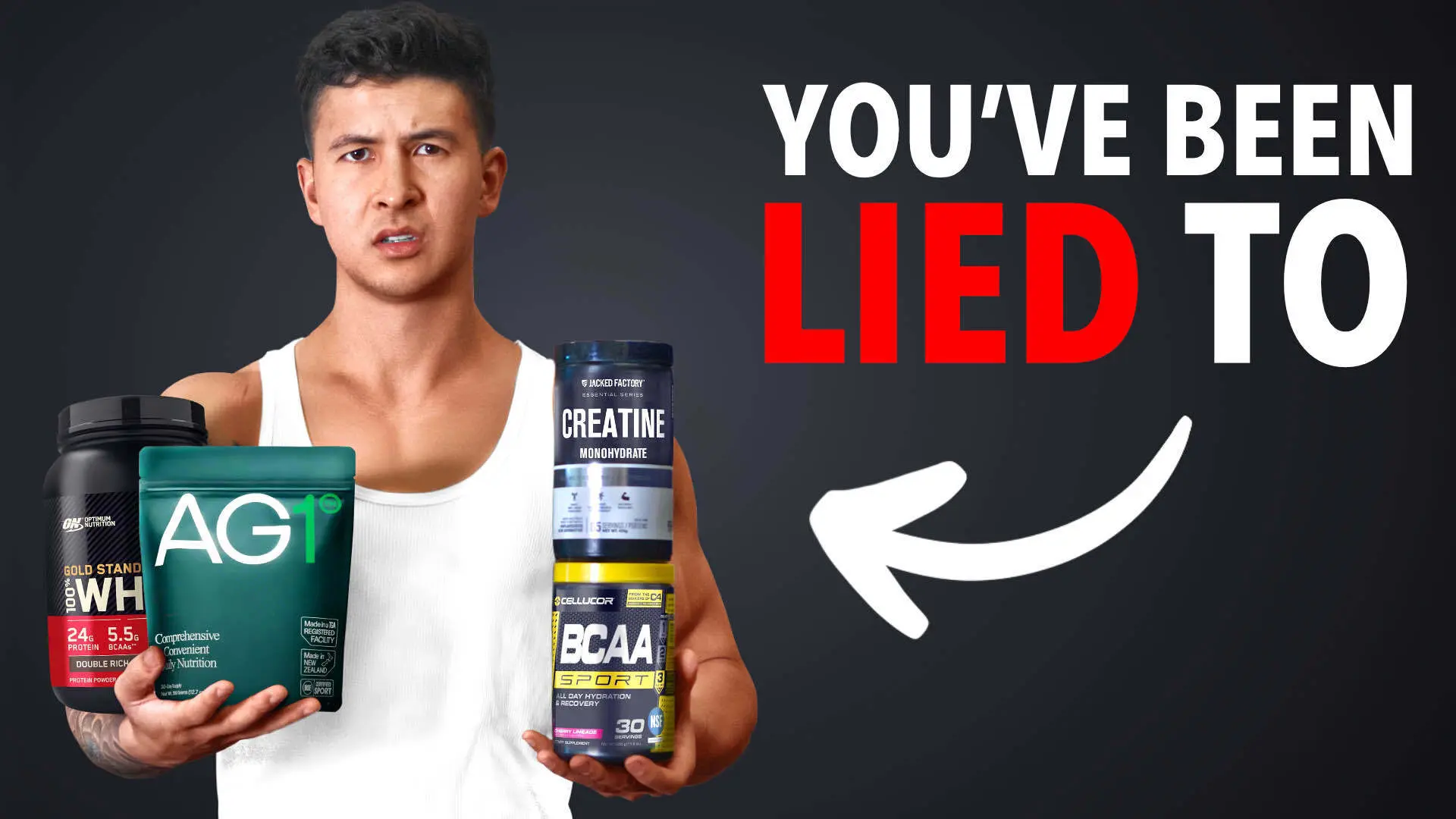
3 Supplement Scams, Exposed
The supplement industry has exploded in growth, reaching about $400 billion just last year. But how much of this is a scam?
Today, I’m testing the most popular supplements, comparing their claims against real scientific data.
I’ll show you what scams to avoid and what research says you should use instead. Starting with one that may come as a surprise.
Creatine
Creatine use has blown up in popularity.
Americans alone consume well over 4 million kilograms each year.
But many companies have been taking advantage of this rising trend …
Some People May Be Creatine Non-Responders
First off, I’ve never seen a company mention this, but up to 30% of people naturally have high levels of creatine, which is why about 1 in 4 don’t see any performance benefits from it.
So, if you don't notice any significant changes in body weight or strength after starting or stopping creatine, you might be naturally blessed.
But that’s only part of the story — wait until you find out the real scam creatine companies are running.
More Expensive Doesn't Mean More Effective
Let me explain.
So back in 2022, a group of researchers analyzed 175 of the most expensive creatine supplements on Amazon.
Shockingly, they found that 88% had either very little or absolutely no evidence supporting the wild claims they were making.
Here’s an example.
This is a tub of “Creatine Ethyl Ester” from Walmart.
According to the sales copy, this is an “exceptionally soluble (type of) creatine resulting in advanced absorption, increased bioavailability, and (increased) stability.”
Did you catch all that?
Probably not, and that’s the point.
Often, supplement companies use complex terms like this to impress — or even confuse — buyers, and make their products seem a lot better than they actually are.
Then, they bump up the price, and people think it “must be better”, without question.
And yeah, I fell for this too.
I used to buy the most expensive creatine I could find, thinking it would lead to better results.
But this one from Walmart goes beyond just confusing words. It’s full of outright lies.
They go on to say that, unlike other forms of creatine, “most users notice a difference in their first dose”. But this isn’t even how creatine works! It takes at least 1-4 weeks to build up in your muscles.
Then they take it even further, claiming that their supplement “directly penetrates the muscle” resulting in “30 to 40 times more ‘functional’ creatine”.
Now that is a pretty bold claim.
But when I dug into the research and found a 2008 study comparing this exact type of creatine with standard creatine monohydrate, guess what I found?
It was less effective!
The problem is that these companies aren’t legally required to conduct studies to prove any of their claims.
Iffy Safety Testing
And a lot of times they aren’t tested for safety either!
In fact, in that same Amazon study, only 8% of the expensive creatine supplements were tested for quality by third-party labs.
What’s even more alarming is another study analyzed over 3000 supplements on the market, and a whopping 28% of them had hidden substances, including, in some cases, banned substances and even steroid precursors, which are chemicals that act like steroids in the body.
So, what does this all mean? Should you stop taking creatine?
Not necessarily. But to avoid scams, you have to make sure you’re picking the right kind.
Which Creatine Supplement Is The Best?
As of current, there’s only 1 type of creatine that may actually be more effective than your basic form of creatine.
It’s called “GAA”.
While the research is promising, it’s still too early to tell if it really is superior.
For now, research has consistently shown that just plain old creatine monohydrate is not only the safest and most effective, it’s also the cheapest. Just try to get one that’s been third-party lab tested so you can be sure of what you’re actually consuming.
Now, the good news is that if you use it properly, creatine monohydrate has been shown to provide a lot of benefits for gym performance. Which is less than can be said for this next supplement on the list …
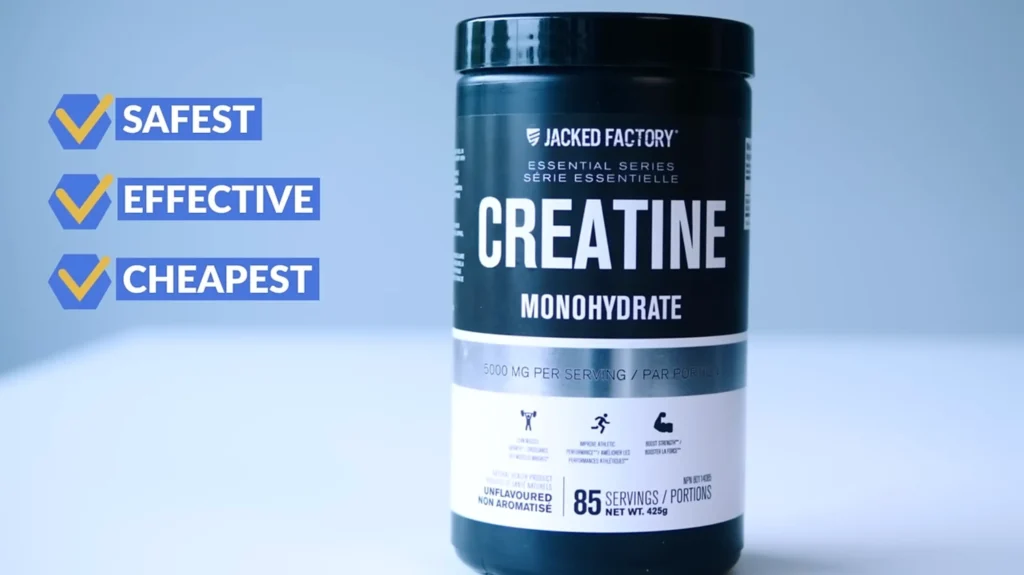
By the way, if you are interested in using creatine, do check out this ultimate science-based creatine guide to learn proper dosage and supplement pairings.
BCAAs
In fact, this one may be one of the oldest scams in bodybuilding.
Imagine this: a supplement marketed as “essential” for boosting muscle growth and recovery but actually does the opposite!
Well, that’s exactly what some research has found.
Back in 1990, researchers wanted to find out how effective BCAAs — or branched chain amino acids —actually were.
Specifically, they wanted to see whether BCAAs could enhance something called “muscle protein synthesis”, which is basically the process your body uses to repair and build muscle after exercise.
The crazy thing is, they found it did the opposite.
Why BCAAs Actually Impair Muscle Recovery And Growth
See, amino acids are just a fancy word to describe the building blocks of proteins.
You get them naturally from things like meat, eggs, dairy, beans, and nuts.
But there are 20 different types of them. BCAAs only contain 3: leucine, isoleucine, and valine.
So what the researchers found is that providing your body with too many BCAAs might actually block other amino acids from being used, potentially hurting muscle recovery and growth.
Yet, to this day, BCAAs are advertised as supplements to “increase muscle growth” and “prevent muscle loss”.
So, each year, people fork out their hard-earned cash to pay for what is basically just flavored water.
And don’t get me wrong. I was one of them!
I used to take BCAAs religiously. But now I know there are much better ways to spend my money for better results in the gym.
Aside from the alternative supplement I’ll mention in just a second, it’s proper nutrition and expert coaching that has made the biggest difference for me.
But I know diets can be hard and not everyone can afford to work with the best coaches.
That’s why my team and I have worked extremely hard to build affordable, science-backed workout and nutrition programs that you can check out right here at BuiltWithScience.com.
I promise, if you want to take your health and fitness to the next level, you’ll get a lot more from our combined multi-decades-worth of experience than from any supplement promising a quick fix.
Why Do Supplement Companies Still Sell BCAAs?
But I know you might be wondering: if this research on BCAAs is 10 years old, why do top brands still sell them?
Well, that’s exactly why.
Because they sell.
BCAAs have been a staple in the bodybuilding community for a long time. And if a product is selling well, there’s little incentive to change it.
A Better Way To Supplement Amino Acids
That said, here’s a pro tip: if you do want to supplement amino acids, EAAs — or essential amino acids —are a much better option.
EAAs include 9 of the most important amino acids rather than 3.
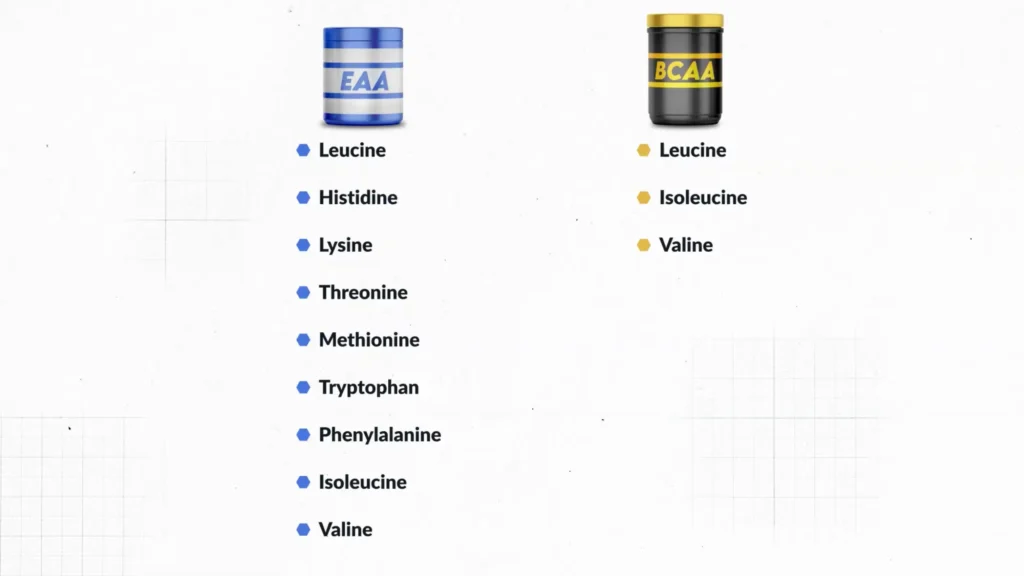
And they can be especially useful for vegetarians or those who like to work out fasted.
But here’s how I see it. If you eat well and get enough protein, neither BCAAs nor EAAs are very likely to help much. And that actually brings us to the last scam to watch out for, which happens to be the latest supplement craze taking over the internet.
Green Powders
We all know we should eat our fruits and vegetables, right? But what if there was an easier way?
Well, that’s the idea behind green supplements. They’re supposedly an easy way to get your fruits and veggies in without having to chop, blend, or cook anything.
But do they really work?
Well, to answer that question, let’s take a look at one of the most popular (and expensive) green powders on the market. Athletic Greens.
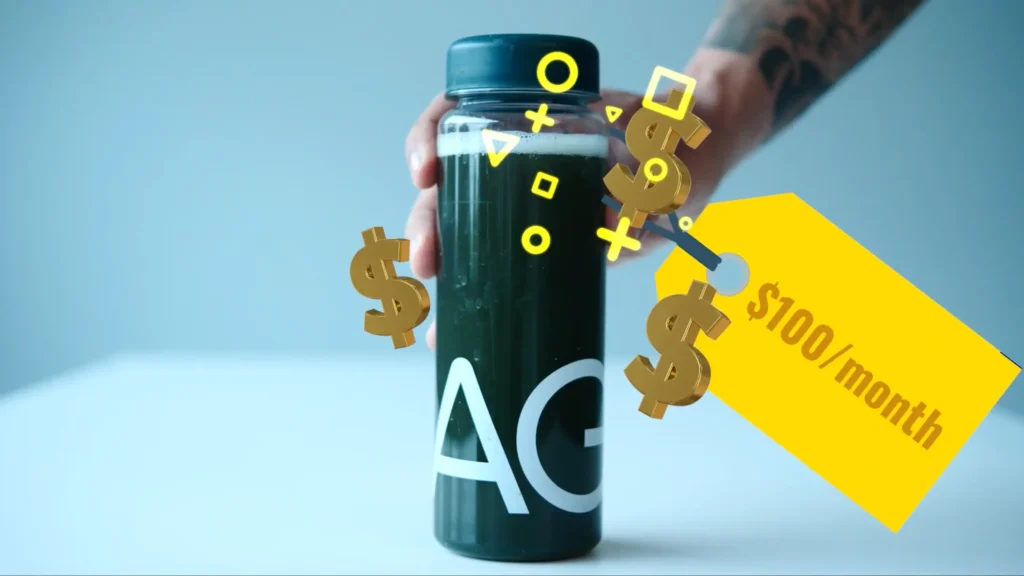
According to the ads, one scoop a day can “give you more energy”, “boost your immune system”, and “improve digestion”.
And we’re already running into problems here.
Little To No Evidence On Efficacy
There’s been little to no evidence suggesting that green powders can do any of these things.
Now, I do know that Athletic Greens has run a study showing that participants who drank their product felt less bloated and more energetic.
While I applaud them for putting some funding towards research, the study had no control group, and the results were all from subjective survey responses.
Basically, people reported feeling better after drinking a green liquid they were told would make them feel better.
Deceptive Labelling
That said, if you look at their nutrition label, you’ll find a pretty impressive list of “antioxidants”, “digestive enzymes” ....
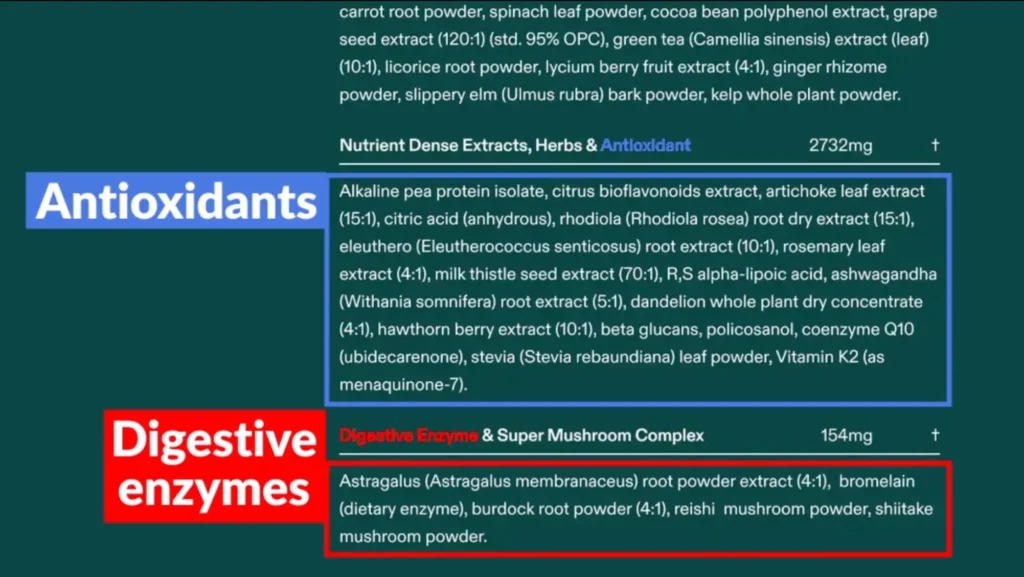
... and even “superfoods”.
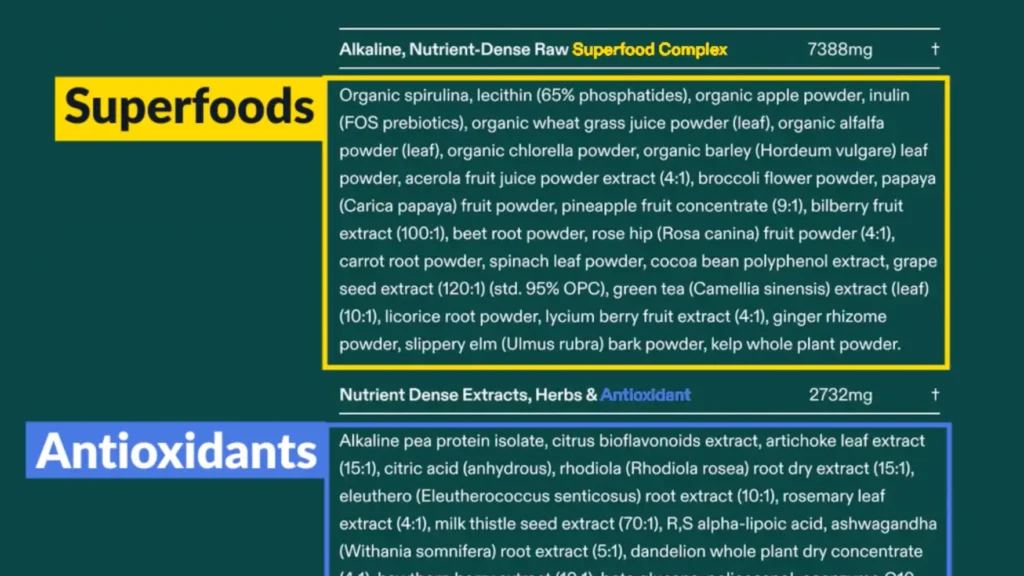
That sounds nice, but not only is “superfoods” an unregulated, made-up term, but most of these ingredients have little to no actual research supporting their benefits.
I also noticed another deceptive trick about their label.
Notice how they list a bunch of ingredients together with the total amount at the top.
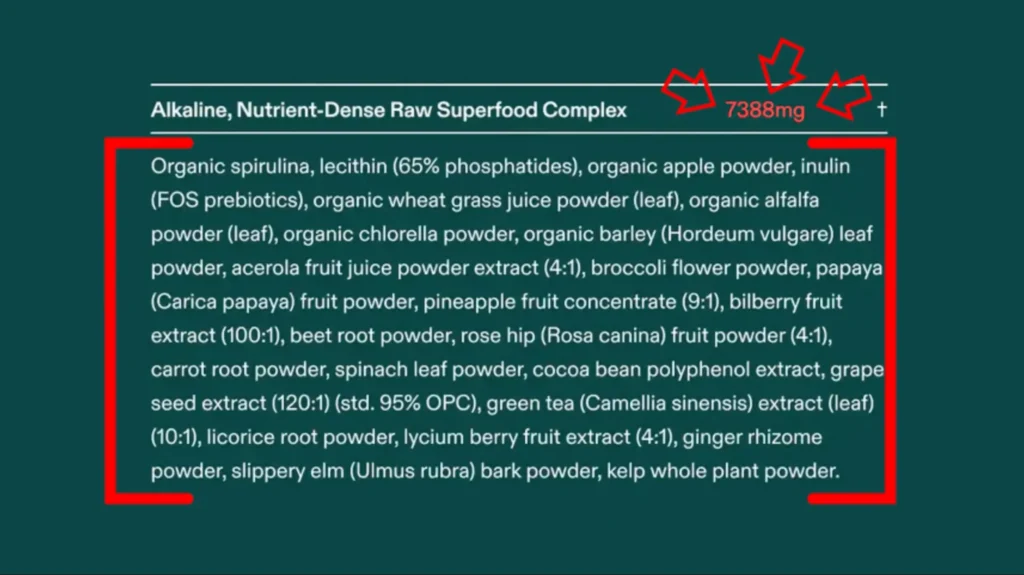
This is common practice amongst most green powders, and it’s a sneaky way of cutting costs and hiding the truth.
You see, by labeling the ingredients in this way, you can’t tell how much of each ingredient is actually included.
This means you have no way of telling if you’re getting the “clinically effective” dose of that ingredient in order for it to actually be effective.
Chances are, you’re not.
Uninspiring Micronutrients Profile
However, if we shift focus and look at their vitamins and minerals list, we see that they actually list how much of each you’re getting.
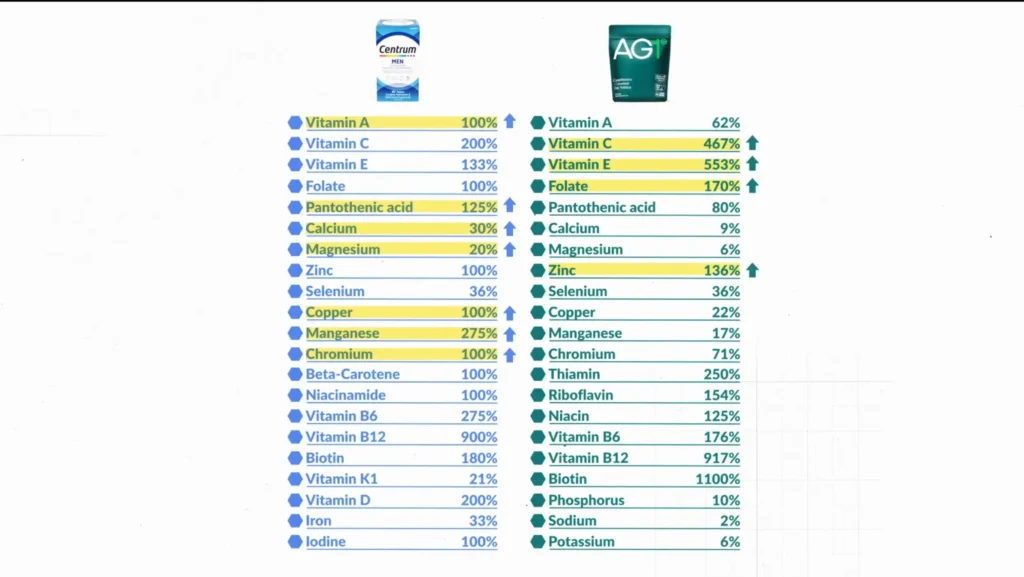
And some of them seem quite impressive.
For example, you get 467% of the daily recommended value of vitamin C and 1,100% of vitamin B7’s.
The thing is, both of these vitamins are water-soluble.
Consume more than your body needs, you just pee them out, giving you no benefit aside from increasing the financial value of your urine.
So far, this isn’t looking too promising.
However, one of the big selling points of greens powders like Athletic Greens is they’re apparently more effective than a multivitamin.
Is it really?
Well here’s the vitamin and mineral breakdown of a $5/month multivitamin I found on Amazon vs that of Athletic Greens.
While Athletic Greens does score much higher on certain vitamins, it also falls short in several important ones such as calcium and magnesium.
The multivitamin also contained several important ingredients not found in Athletic Greens at all.
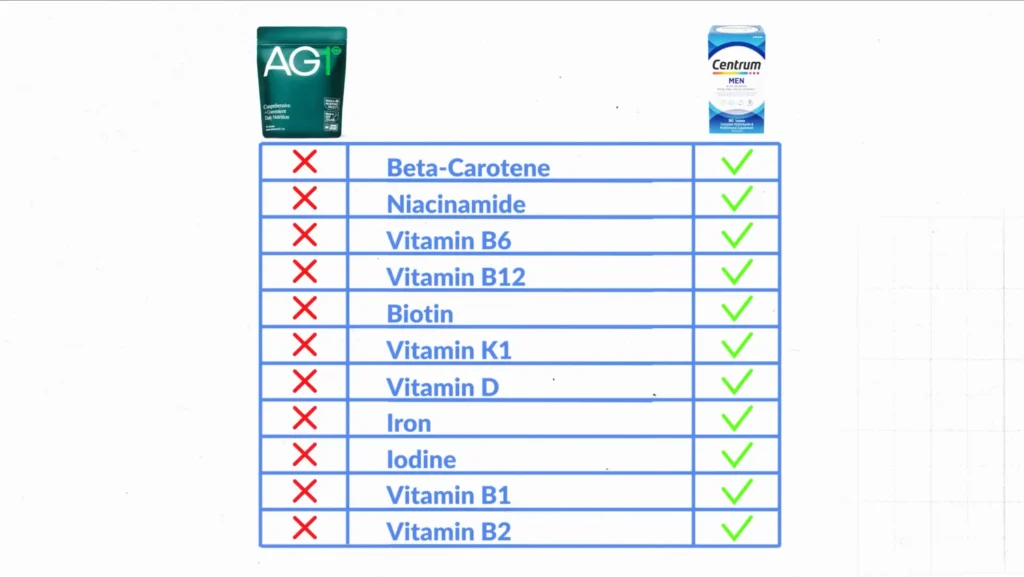
So for a lot less money, a standard multivitamin gives you a more balanced mix of nutrients.
But ... Aren't The Nutrients From Whole Foods "Better"?
And I know some of you might now be thinking “green supplements are better because they’re sourced from whole foods”.
And while that is true, research has yet to show this makes any difference.
Even if you “extract” the nutrients from whole foods, you still lose a lot of what makes them so good for you in the first place.
In fact, because of this, as of 2018, the Public Health of England declared that greens powders do not count towards your “5-servings-a-day” of fruits and veggies.
And that’s part of the problem.
Because of how green powders are marketed, many people think they can rely on these supplements instead of eating real food.
Whereas eating enough servings of fruits and vegetables a day has tons of strong evidence showing it improves health, body composition, gut health, digestion, longevity, and pretty much everything else you can think of.
So while it’s possible a greens powder may provide a small benefit for those who eat very little fruits and vegetables, it’s not a replacement.
And it’s definitely a lot more pricey than a simple multivitamin.
TL;DR
- Creatine supplements aren’t strictly a scam, but some people may be non-responders. Effectiveness isn’t correlated with cost. Safety testing may also be iffy.
- BCAAs impair muscle recovery and growth by “blocking” the use of other amino acids. Consider supplementing with EAAs instead.
- The problems with green powder supplements include the dearth of evidence supporting their benefits, deceptive labeling practices, and subpar micronutrient profiles.
- Proper nutrition and expert coaching will make a way, way bigger difference for your health and fitness than any supplement promising a quick fix.
Eating Healthy: Too Expensive Or Too Difficult?
That said, a common complaint I hear is that it’s either “too expensive” or “difficult” to "eat healthy”.
That’s exactly why I’ve created:
- An easy, healthy fat loss meal that'll cost you just $5/day, which you can check out here
- Another budget-friendly meal plan that's focused on building muscle, which you can check out here
And for more help, take our free quiz to find the best all-in-one training and nutrition program that’ll guide you every week to the best shape of your life below:
Click the button below to take my analysis quiz to discover the best program for you:
↓
Thanks for sticking to the end and I’ll see ya next time!

